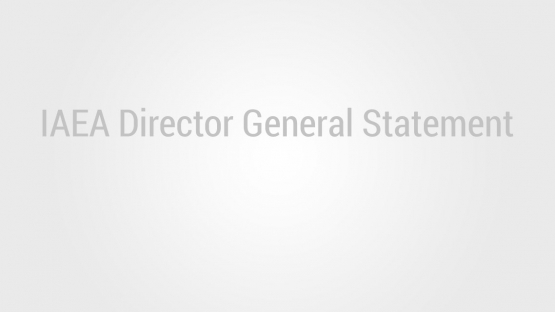The future of nuclear energy may depend heavily on success in developing new, innovative reactors and fuel cycle designs that exhibit enhanced safety features, proliferation resistance, and economic competitiveness.
Subject to the availability of extrabudgetary resources, the Agency plans to establish a task force next year on innovative reactors and fuel cycles. This task force will assess future demands and identify the technical reactor and fuel cycle features and characteristics that could meet these demands. It will be expected to make recommendations on ways to engender co-operative R&D among countries working on similar design concepts, and to otherwise stimulate the pooling of resources and expertise. The Secretariat will convene a meeting in November in Vienna for senior officials from those countries that wish to participate and provide extrabudgetary contributions.
Small and medium sized reactors (SMRs) also can be a suitable choice for electricity generation and/or heating in remote areas or in countries with small electrical grid capacities. A number of innovative small reactors are currently under development. The Pebble Bed Modular Reactor (PBMR), under development in South Africa, is one example. The Agency has been working closely with South Africa to review and provide advice on technology and safety issues. China also has developed a 10 MW pebble bed reactor—which will be operational by the end of the year -- as a pilot project capable of demonstrating the inherent safety features of this design. Other examples of innovative small reactors under development include CAREM in Argentina and SMART in the Republic of Korea.
Accessible freshwater resources are dwindling around the globe, due primarily to over-exploitation or water quality degradation resulting from human activities.
At the Agency, we have given high priority to the development of nuclear desalination technology that could produce potable water economically. I am pleased by the progress made on our "Integrated Nuclear Reactor and Desalination System Design" -- a project involving inter-regional technical co-operation. Since its initiation in 1999, we have completed reviews on relevant state-of-the-art technologies and the status of planned and in progress nuclear desalination demonstration projects. I understand that discussions are being held among some Member States on the joint development of such a demonstration project. The Agency will be ready to assist these endeavours.
Because of its complexity, the issue of radioactive waste management is often perceived very differently by the public and the scientific community. Major international conferences over the past year have emphasized that, although experts believe we have the technology to manage radioactive waste in a safe, economical, and environmentally responsible manner, the public at large remains sceptical. The "International Conference on the Safety of Radioactive Waste Management" organized by the Agency in Córdoba, Spain earlier this year made an important beginning in addressing this and other waste issues. This year’s Scientific Forum, on 19–20 September, will attempt to further discuss how to bridge this gap in perspectives and widen the scope of discussion.
Since the last meeting of the Board, technical discussions with the Democratic People’s Republic of Korea (DPRK) have enabled us to resolve a number of minor day-to-day problems. However, there has been no significant change to the assessment made at the last meeting of the Board. The Agency is still unable to verify that the DPRK has, in fact, declared all nuclear material which should be subject to safeguards.
With the construction phase of the Light Water Reactor (LWR) project now under way, we are coming closer to the time at which the "key nuclear components" of the LWRs are due to be delivered. Before this can happen, the DPRK must, under the "Agreed Framework" between the DPRK and the United States of America, "come into full compliance with its safeguards agreement" including "taking all steps that may be deemed necessary by the IAEA, following consultations with the Agency with regard to verifying the accuracy and completeness of the DPRK’s initial report on all nuclear material in the DPRK."
There are many steps that the Secretariat needs to take and activities that it needs to carry out before it will be able to make any meaningful assessment of the correctness and completeness of the DPRK’s initial declaration. Our assessment is that the entire verification process may take between 3 and 4 years to complete, depending on the results of our initial findings and on the degree of co-operation that we receive from the DPRK.
We therefore need to start our work now. For that, full co-operation on the part of the DPRK is and will continue to be essential. Given the recent positive developments in the Korean Peninsula, it is my hope, as I have said previously to the Board, that the DPRK will soon be ready to commence active co-operation with the Agency toward that end. Its normalization of relations with the Agency will also help us to provide advice and expertise regarding the safety aspects of the project.
In keeping with the General Conference mandate, I have continued my consultations with the States of the Middle East region regarding the application of full-scope safeguards to all nuclear activities in the Middle East, and the development of model agreements, that would contribute to the establishment of a nuclear weapon free zone (NWFZ). Regrettably, little progress has been achieved so far. Needless to say, I will continue to use all available avenues, within my authority, and with the concurrence of the States concerned, to move that mandate forward. Movement toward an overall settlement in the region will certainly boost my ability to make progress.


